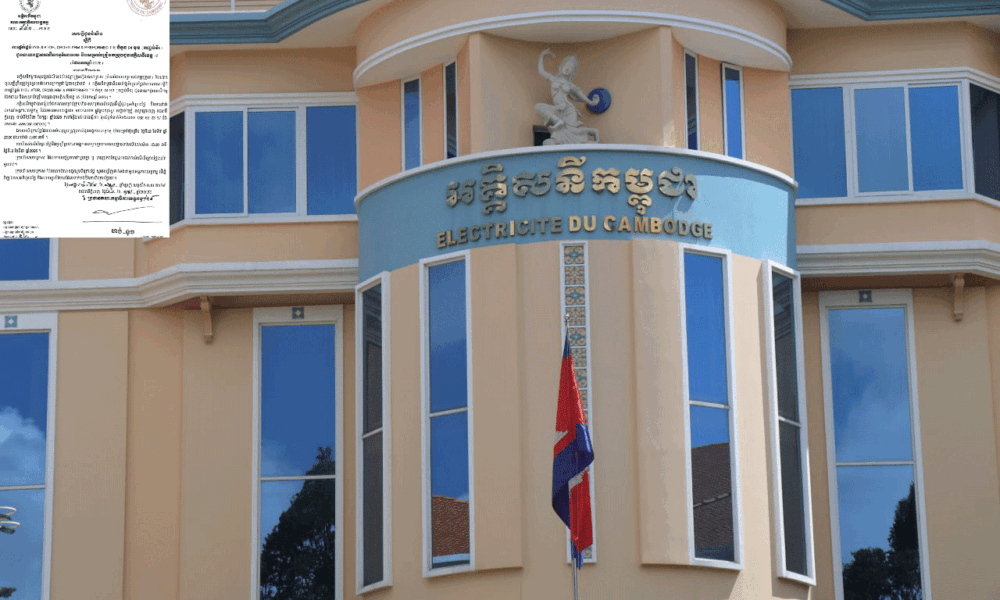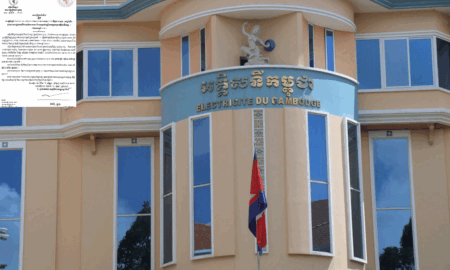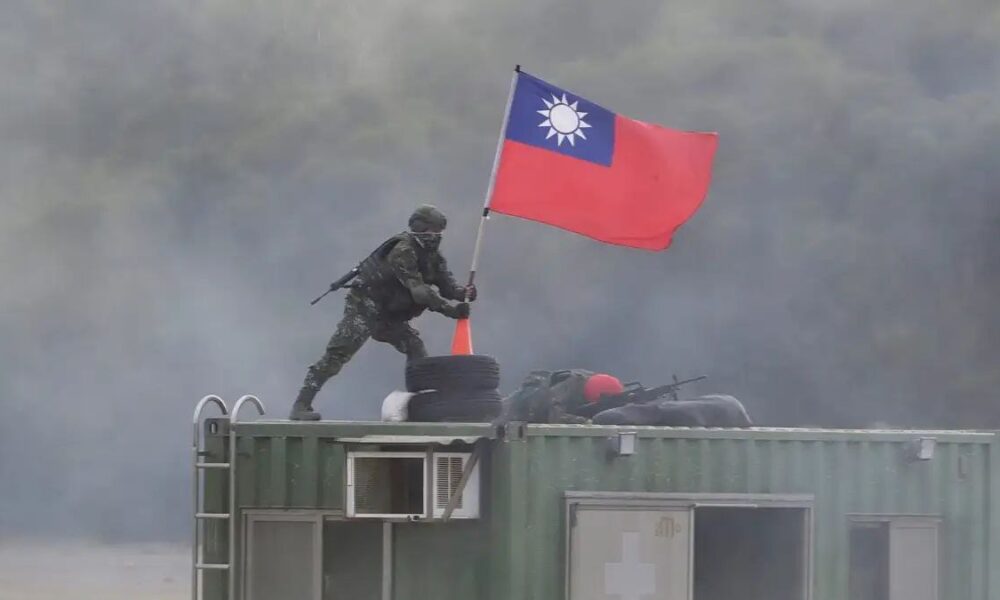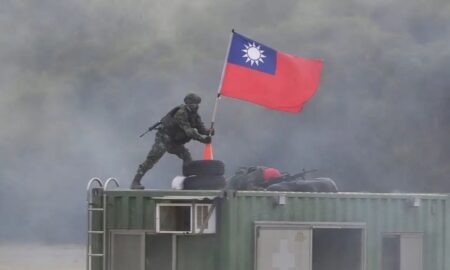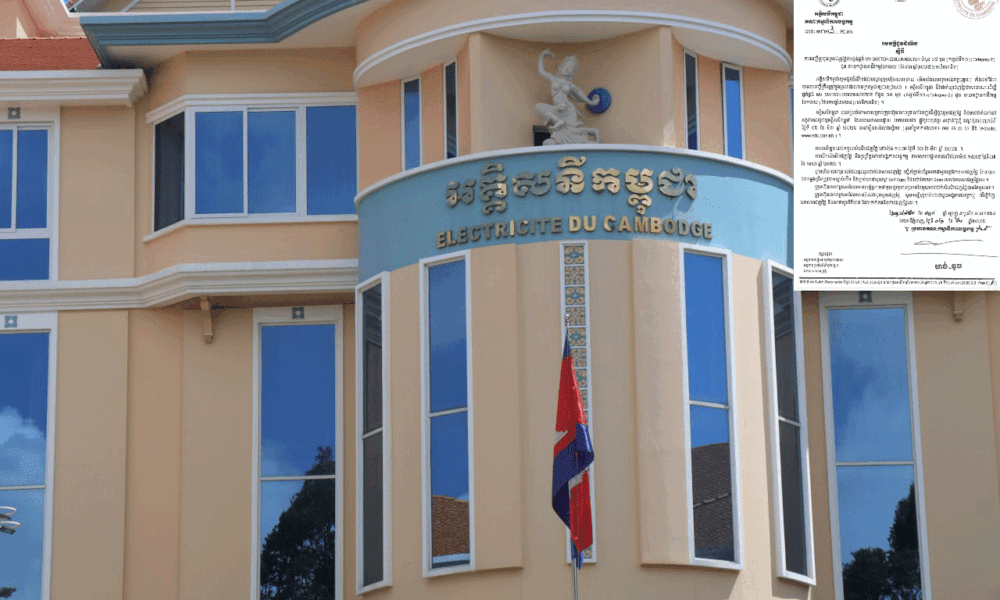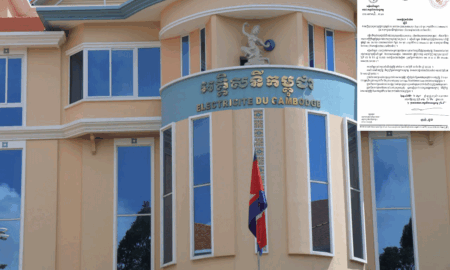វិភាគ៖ ការបោះឆ្នោតប្រជាមតិលុបចោល MoU (s) របស់ថៃ គឺជាមហិច្ឆិតាឆោតល្ងង់ផ្នែកច្បាប់អន្តរជាតិ ហេតុអ្វី?
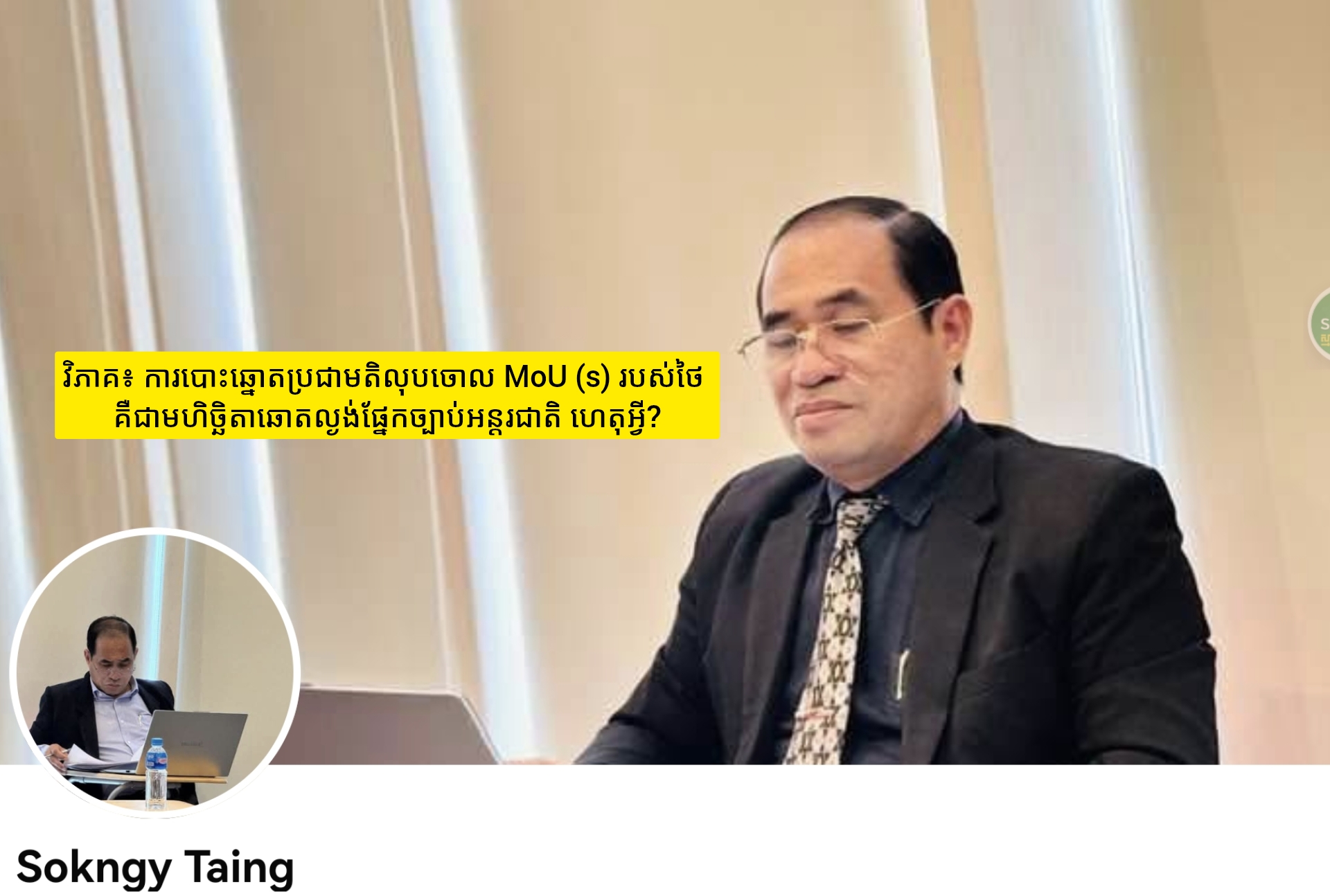
ផ្អែកតាមអនុសញ្ញា និងសន្ធិសញ្ញាបារាំង-សៀមឆ្នាំ១៩០៤-១៩០៧ និងផែនទីឧបសម្ព័ន្ធទី១ ឆ្នាំ១៩០៨
ទាំង MoU ឆ្នាំ២០០០ ព្រំដែនគោក និងMoU ឆ្នាំ២០០១ ព្រំដែនទឹកដែលភាគីទាំងពីរ បានព្រមព្រៀងគ្នាឡើង គឺស្របតាមច្បាប់កំរិតថ្នាក់ជាតិ និងច្បាប់អន្តរជាតិ។
ក្នុងករណីដែលប្រទេសថៃ ធ្វើប្រជាមតិលុបចោលអនុស្សរណៈខាងលើ ក្រោមរដ្ឋាភិបាលរបស់លោក Anutin Charnvirakul នាយករដ្ឋមន្រ្តី បានអនុម័តដោយជោគជ័យ នេះបង្ហាញថា ថៃ មិនយល់ច្បាប់អន្តរជាតិទាល់សោះ ព្រមទាំងបានបំពានយ៉ាងកំរោលលើអធិបតេយ្យរបស់កម្ពុជាថែមទៀតផង។
ក្រោមមូលហេតុអ្វី?
ផ្អែកតាម MoU (s) ទាំងពីរខាងលើ បានបង្កើតឡើងគឺដើម្បីរុករកបោះបង្គោលព្រំដែនដោយសន្តិវិធីផ្អែកតាមច្បាប់អន្តរជាតិ ហើយក៏មិនធ្វើឱ្យបាត់បង់អធិបតេយ្យភាពរបស់ប្រទេសទាំងពីរដែលបានព្រមព្រៀងជាមួយគ្នានោះបានឡើយ។
មហិច្ឆិតាឆោតល្ងង់ផ្នែកច្បាប់អន្តរជាតិ ៖
ដ្បិតផ្ទៃដីថៃ មានទំហំ ៥១៣,១២០ គម២ ធំ និងជាប់ចំណាត់ថ្នាក់លេខរៀងទី៣បន្ទាប់ពីប្រទេសឥណ្ឌូនេស៊ី និងមីយ៉ាន់ម៉ា ក៏ដោយ ប៉ុន្តែប្រទេសថៃនៅតែមានមហិច្ឆិតាបន្តដោយគ្មានដឹងច្បាប់ទម្លាប់អន្តរជាតិទាល់តែសោះ។
ក្រោមហេតុផល ៖
ទី១-កត្តាបំពានច្បាប់អន្តរជាតិ
ថៃ បានបំពានច្បាប់ និងសន្ធិសញ្ញាអន្តរជាតិក្រោមមាត្រា២៦នៃអនុសញ្ញាទីក្រុងវីយែនស្តីពីច្បាប់នៃសន្ធិសញ្ញាដែលកាតព្វកិច្ចរបស់ប្រទេសថៃ បានចុះហត្ថលេខា ត្រូវតែគោរព។
កំណត់ចំណាំ
ផ្នែកការទូត ៖
កម្ពុជា បានដាក់ពាក្យបណ្តឹងនៅតុលាការ ICJ រួចហើយកាលពីថ្ងៃទី១៥ ខែមិថិនា ឆ្នាំ២០២៥ ប៉ុន្តែផែនការបន្ត ត្រូវតែរៀបចំឯកសារភស្តុតាងរឹងមាំរួចជាស្រេចទៅកាន់ UNSC ក្នុងករណីដែលថៃប្រើប្រាស់កម្លាំងយោធាដើម្បីឈ្លានពានបន្ទាប់ពីបានលុបចោល MoU (s) ខាងលើ។
ទី២-ផលប៉ះពាល់លើអាស៊ាន និងស្ថិរភាពក្នុងតំបន់ ៖
ថៃ បានធ្វើឱ្យប៉ះពាល់យ៉ាងធ្ងន់ធ្ងរដល់គោលការណ៍ស្នូលរបស់អាស៊ាន (ASEAN Centrality) គឺការដោះស្រាយជម្លោះដោយសន្តិវិធី នៅត្រង់ថា សកម្មភាពឯកតោភាគីរបស់ប្រទេសថៃ ប្រឈមនឹងភាពជឿជាក់របស់អាស៊ាន និងការរួមគ្នាក្នុងតំបន់ដែលអាចធ្វើឱ្យខូចមុខមាត់របស់ថៃ ក្នុងនាមជាតួអង្គក្នុងតំបន់ដែលមានទំនួលខុសត្រូវខ្ពស់។
ទី៣-ផលវិបាក និងនយោបាយរបស់ខ្លួន ៖
ចលនានយោបាយជាតិនិយម បង្កើតឧបសគ្គស្ថិរភាពបន្តដល់រដ្ឋាបាលស្របច្បាប់រយៈពេលវែងរបស់ថៃ
មានការរិះគន់ពីសង្គមស៊ីវិល និងអ្នកច្បាប់ថៃ
ប៉ះពាល់ជាមួយយោធាដែលតែងតែគ្រប់គ្រងតំបន់ព្រំដែន បង្កជម្លោះនឹងកម្ពុជារាំរៃ និង
ការធ្លាក់ចុះសេដ្ឋកិច្ច ប្រសិនបើកម្ពុជា ឆ្លើយតបដោយការដាក់ទណ្ឌកម្ម ឬការរឹតបន្តឹងផ្នែកពាណិជ្ជកម្ម។
ជារួម ៖
ការដកខ្លួនចេញពី MoU (s) របស់ថៃ នឹងធ្វើឱ្យប្រទេសថៃ ខូចដល់ភាពជឿជាក់ផ្នែកច្បាប់យ៉ាងធ្ងន់ធ្ងរនៅលើឆាកអន្តរជាតិ។
ប្រទេសថៃ នឹងត្រូវបានគេមើលឃើញថាជាអ្នកបំផ្លាញនីតិរដ្ឋ ជាពិសេស នៅក្នុងធម្មនុញ្ញអាស៊ាន និងធម្មនុញ្ញអង្គការសហប្រជាជាតិ ៖
ឧៈ • ថៃ នឹងចុះខ្សោយតួនាទីដឹកនាំនៅក្នុងតំបន់
• ថៃ ខូចទំនាក់ទំនងជាមួយប្រទេសជិតខាង
• ថៃ នឹងត្រូវបានគំរាមបណ្តេញចេញពីសមាជិកអសបដូចក្នុងឆ្នាំ១៩៦២ បន្ទាប់ពីថៃ មិនបានគោរពសាលក្រមរបស់តុលាការ ICJ និង
• បើកទ្វារសម្រាប់មហាអំណាចខាងក្រៅ (ឧ. ចិន សហរ) មានឥទ្ធិពលលើនយោបាយក្នុងតំបន់ផ្ទុយពីគោលការណ៍អាស៊ានដែលមហាអំណាចទាំងពីរនេះ ក៏ដូចជាសមាជិកអចិន្រ្ទៃយ៍ UNSC បាន និងកំពុងតែងាកមករកការគាំទ្រផ្នែកច្បាប់មកខាងភាគីកម្ពុជា។
កម្ពុជា នឹងឆ្លើយតបដោយយោធាប្រកបដោយយុទ្ធសាស្រ្ត ប្រើយន្តការការទូត (ឧ. UNSC) និងកាន់តែពង្រឹងប្រើប្រាស់តាមយន្តការតុលាការមជ្ឈត្តការអន្តរជាតិទាំងព្រំដែនគោក ទាំងសាលាក្តីនីតិសមុទ្ទ (ITLOS) ហើយនៅទីបញ្ចប់ »»»
ប្រទេសថៃ អាចប្រឈមមុខនឹងការថ្កោលទោស ការដាក់ទណ្ឌកម្ម ឬការចេញមជ្ឈត្តវិនិច្ឆ័យដោយបង្ខំឱ្យថៃអនុវត្តដោយសាលាក្តីអាជ្ញាកណ្តាលអន្តរជាតិខាងលើជាក់ជាមិនខាន។
សម្រាប់ប្រទេសថៃ ៖
យកល្អ ត្រូវបន្ត រក្សា និងអនុវត្តកិច្ចព្រមព្រៀង MoU (s) ដែលមានស្រាប់ រួមមាន ៖
- បន្តការចរចាទ្វេភាគី ៖
• ការកំណត់ព្រំដែនបច្ចេកទេស ក្រោមគណៈកម្មការព្រំដែនរួម (JBC)
• យន្តការដោះស្រាយវិវាទដោយសន្តិវិធី រួមទាំងក្របខ័ណ្ឌអាស៊ាន និងការសម្របសម្រួលអន្តរជាតិប្រសិនបើចាំបាច់។
សម្រាប់ប្រទេសកម្ពុជា ៖
ប្រើប្រាស់ផ្លូវច្បាប់ ICJ ឬសាលាក្តី ITLOS (នៅត្រង់ចំណុចនេះ កម្ពុជា គួររួសរាន់ផ្តល់សច្ចាប័នលើ UNCLOS ឆ្នាំ១៩៨២) និង UN ដើម្បីប្រឈមនឹងការដកខ្លួនរបស់ថៃចេញពី MoU (s)
ការប្រមូលផ្តុំការទូតអាស៊ាន បារាំង និងសម្ព័ន្ធមិត្តពិភពលោក
ការពារសុវត្ថិភាពដោយមិនបង្កហេតុ ការពារជនស៊ីវិល
ទំនាក់ទំនងសាធារណៈ ទំនាក់ទំនងសន្តិភាព ភាពស្របច្បាប់ និងឯកភាព និង
ឯកសារអភិបាលកិច្ច ផែនទី និងការចរចាក្នុងក្របខ័ណ្ឌច្បាប់អន្តរជាតិ៕
ដោយបណ្ឌិត តាំង សុខងី
ថ្ងៃទី៣០ ខែកញ្ញា ឆ្នាំ២០២៥
——————
September 30, 2025
Thailand’s referendum to repeal the MoU is a foolish ambition in international law
Why?
Based on the Franco-Siamese Conventions and Treaties of 1904-1907 and the 1908 Annex I Map,
Both the 2000 MoU on land borders and the 2001 MoU on water borders agreed upon by both parties are in accordance with national and international law.
In the case of Thailand’s referendum to repeal the above memorandum, under the government of Prime Minister Anutin Charnvirakul, which was successfully passed, this shows that Thailand does not understand international law at all and has grossly violated Cambodia’s sovereignty.
Why?
Based on the above two MoU(s), they were established to explore the peaceful demarcation of the border based on international law and do not undermine the sovereignty of the two countries that agreed upon it.
Stupid ambitions in international law:
Although Thailand has a land area of 513,120 km2 and ranks third after Indonesia and Myanmar, Thailand still has ambitions to continue without knowing international law at all.
Reasons:
1- Violation of international law
Thailand has violated international law and treaties under Article 26 of the Vienna Convention on the Law of Treaties, which Thailand is a signatory to and is obligated to respect.
Note
Diplomatic:
Cambodia has already filed a complaint with the ICJ on June 15, 2025, but the plan to continue must prepare strong evidence to the UNSC in case Thailand uses military force to invade after revoking the above MoU(s).
2- Impact on ASEAN and regional stability:
Thailand has seriously undermined ASEAN’s core principle (ASEAN Centrality), namely the peaceful resolution of disputes, in that Thailand’s unilateral actions threaten ASEAN’s credibility and regional cohesion, which could damage Thailand’s image as a responsible regional actor.
3- Its own consequences and politics:
Nationalist political movements pose a continuing obstacle to the long-term stability of Thailand’s legitimate government.
There is criticism from Thai civil society and legal scholars.
Interference with the military, which often controls the border area, causing conflicts with Cambodia.
Economic downturn if Cambodia responds with sanctions or trade restrictions.
In summary:
Thailand’s withdrawal from the MoU(s) will seriously damage Thailand’s legal credibility on the international stage.
Thailand will be seen as a destroyer of the rule of law, especially in the ASEAN and UN Charters:
Example: • Thailand will weaken its leadership role in the region
- Thailand will damage its relations with its neighbors
- Thailand will be threatened with expulsion from the UN as in 1962 after Thailand did not respect the ICJ ruling and
- Open the door for external powers (e.g. China, the United States) to influence regional politics contrary to ASEAN principles, which these two powers, as well as the permanent members of the UNSC, have been and are turning to for legal support on Cambodia’s side.
Cambodia will respond with strategic military action, diplomatic mechanisms (e.g. UNSC) and increasingly through the International Tribunal for the Law of the Sea (ITLOS) and ultimately »»»
Thailand may face condemnation, sanctions or forced arbitration by the aforementioned international arbitration tribunal.
For Thailand:
It is advisable to continue, maintain and implement the existing MoU(s), including:
- Continue bilateral negotiations:
- Technical demarcation under the Joint Boundary Commission (JBC)
- Peaceful dispute resolution mechanisms, including the ASEAN framework and international mediation if necessary.
For Cambodia:
Use the ICJ or ITLOS (at this point, Cambodia should ratify the 1982 UNCLOS) and the UN to challenge Thailand’s withdrawal from the MoU(s)
Gather ASEAN, French and global allies’ diplomacy
Protect security without provocation, protect civilians
Public relations, peace relations, legality and unity, and
Governance documents, maps and negotiations within the framework of international law.
By Dr. Taing Sokngy
——————


